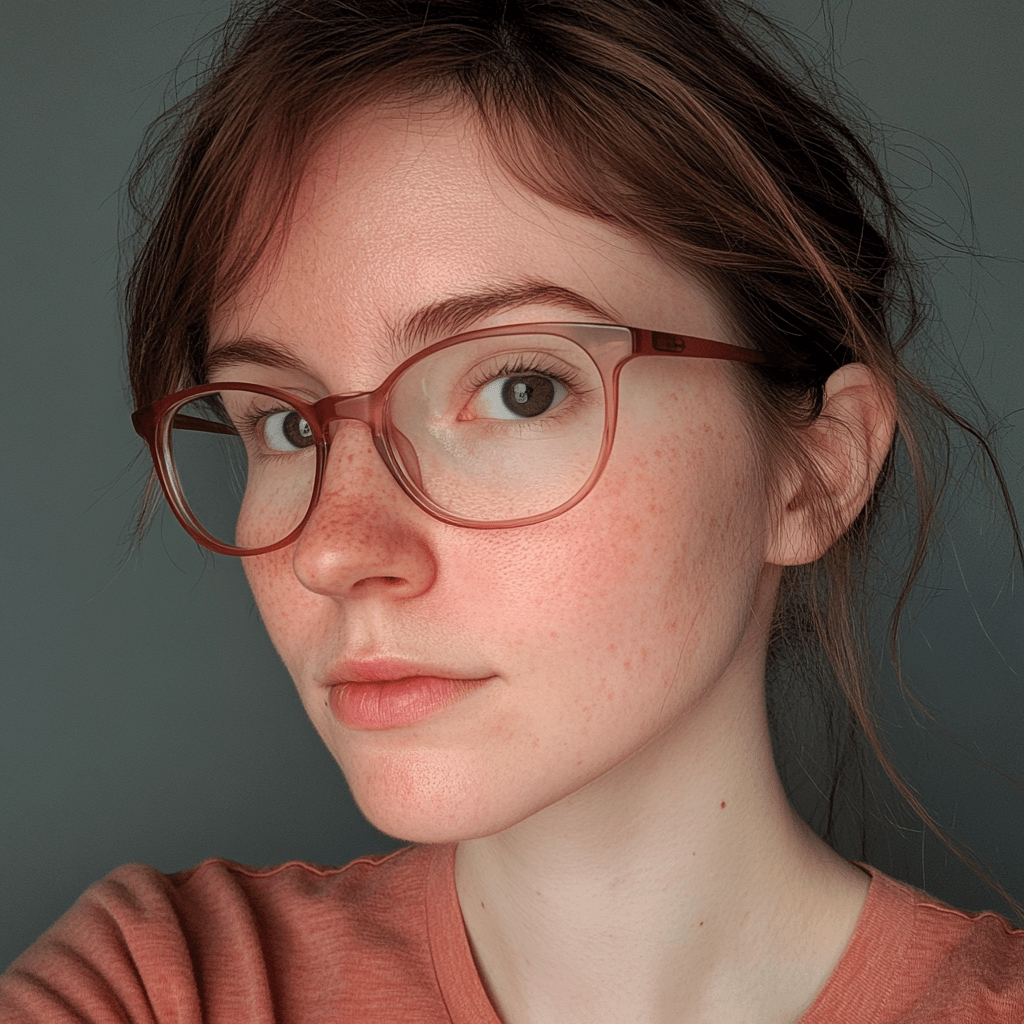Our eyes are intricate organs, and while drinking water won’t magically give you 20/20 vision, staying hydrated plays a surprisingly important role in maintaining eye health. In this article, we explore how water supports your visual system, what science and experts say, and how you can protect your sight through better hydration.
Introduction to Eye Health and Hydration
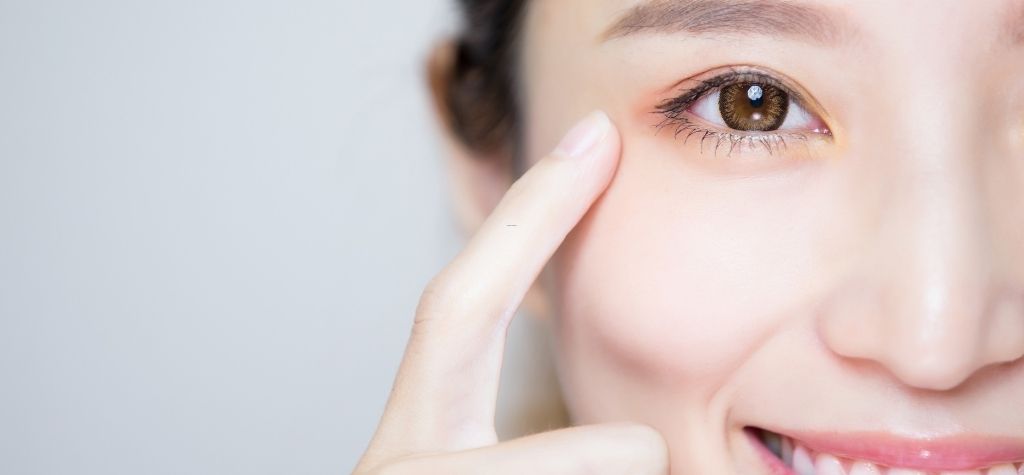
Your body is about 60% water, and your eyes depend on that water to function properly. Hydration helps keep your eyes lubricated, nourished, and free from debris. Without enough fluids, your eyes can feel dry, irritated, and fatigued—especially if you’re staring at screens all day.
Dehydration doesn’t just affect your energy or skin—it can also mess with your vision. Though water won’t correct nearsightedness or eliminate your need for glasses, it helps maintain the essential processes your eyes rely on.
The Structure of the Eye and Its Dependence on Fluids
The human eye has several parts that are either fluid-based or require constant moisture:
- Tear film: This thin layer keeps your eyes clean and comfortable. It’s made of water, oils, and mucus.
- Aqueous humor: This clear fluid nourishes the cornea and lens and maintains intraocular pressure.
- Cornea: As the eye’s outermost layer, it relies on hydration to stay transparent and flexible.
Water helps support these components. Inadequate hydration may cause imbalances that can affect your comfort and, to a lesser extent, your clarity of vision.
What Happens to Your Eyes When You’re Dehydrated?
When you’re not drinking enough water, your eyes are among the first to feel the impact:
- Dryness and irritation: Dehydration reduces tear production.
- Blurry vision: Less fluid means less lubrication, leading to temporary blur.
- Redness or eye fatigue: Blood vessels may become more visible or strained.
Over time, chronic dehydration can contribute to conditions like dry eye syndrome or even affect your contact lens tolerance.
Can Drinking More Water Directly Improve Eyesight?
Water won’t correct refractive errors like myopia or hyperopia. However, it can:
- Relieve dryness
- Improve tear film stability
- Support general ocular health
This means that while your prescription won’t change by drinking water, you might experience sharper, more comfortable vision simply because your eyes are operating more efficiently.
Expert Opinions on Water and Vision Health
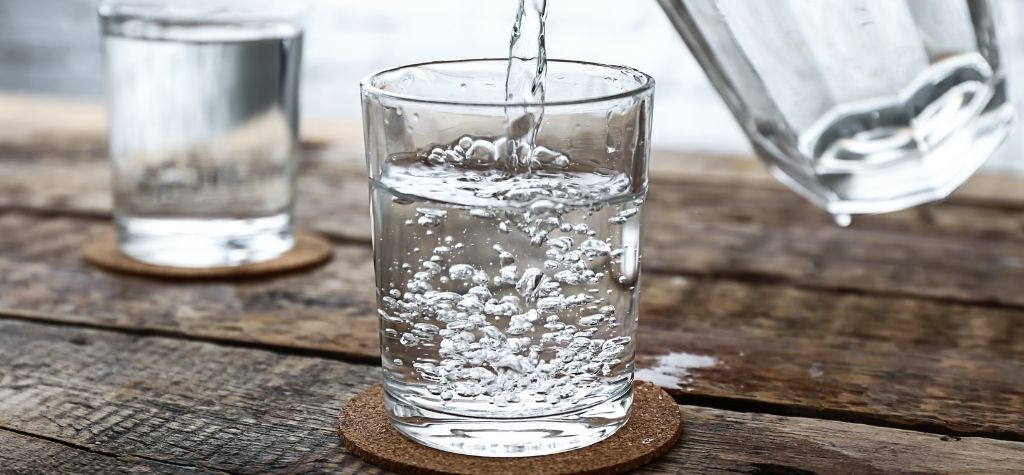
Eye care professionals widely agree that hydration supports optimal eye function. According to Dr. Jeff Pettey, an ophthalmologist at the University of Utah, “Even mild dehydration can exacerbate dry eye symptoms, especially in people who spend a lot of time at a computer.”
Some experts also emphasize hydration as part of a holistic approach to eye care, especially for people with certain medical conditions or medications that cause dryness.
Conditions That May Benefit From Improved Hydration
While water isn’t a cure-all, some eye conditions see real benefit from proper hydration:
- Dry Eye Syndrome: Hydration can ease symptoms by improving tear production.
- Computer Vision Syndrome: Water helps combat strain from prolonged screen use.
- Allergies: Adequate fluids can help flush allergens and reduce inflammation.
Staying hydrated won’t eliminate these conditions but may help lessen their severity.
How Much Water Should You Drink for Optimal Eye Health?
The general recommendation is 8 cups (64 ounces) of water daily, but that varies depending on:
- Age
- Activity level
- Climate
- Diet
Your eyes, like the rest of your body, function best when well-hydrated—so listen to your body and sip throughout the day.
Best Times and Ways to Stay Hydrated for Your Eyes
Hydration isn’t just about quantity—it’s also about timing and method. To support eye health effectively, consider these tips:
- Start your day with water: Drinking a glass of water first thing in the morning helps jumpstart fluid production, including tear film replenishment.
- Spread intake evenly: Rather than chugging a liter at once, sip water consistently throughout the day to maintain a steady hydration level.
- Eat water-rich foods: Fruits like watermelon, oranges, cucumbers, and leafy greens contribute significantly to daily hydration.
- Limit dehydrating drinks: Be mindful of excess caffeine or alcohol, which can counteract your hydration efforts.
Creating hydration habits—like carrying a water bottle or setting reminders—can support both general and ocular health.
Signs You’re Not Drinking Enough Water for Your Eyes
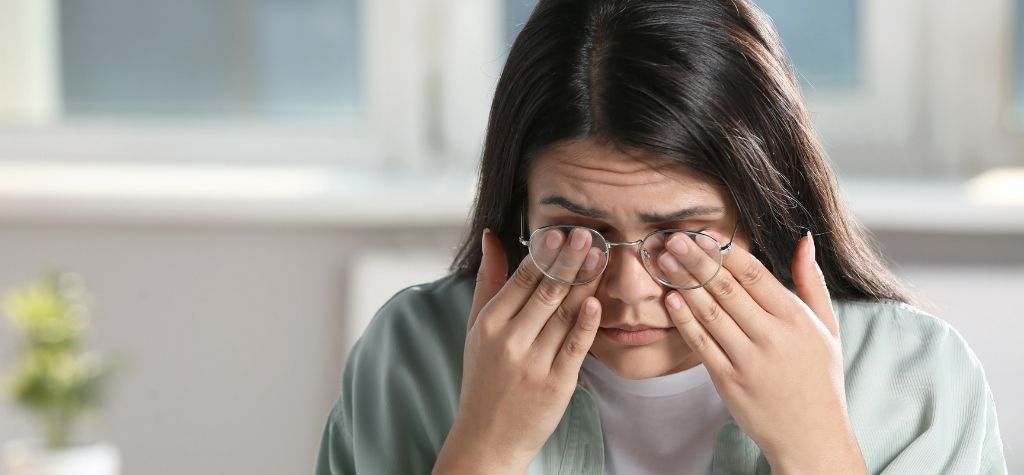
Sometimes your eyes send subtle signals that you need to up your water intake. These may include:
- Itchy, gritty sensations
- Increased eye fatigue
- Red or bloodshot eyes
- Burning or stinging
- Light sensitivity
- Temporary blurriness
If these symptoms arise regularly, consider whether dehydration might be the culprit. A simple increase in water intake could bring noticeable relief.
Can Water Replace Artificial Tears?
This is a common question—and the answer is: not quite.
- Water supports internal hydration, helping maintain tear production.
- Artificial tears offer external relief, especially in cases of chronic dryness or environmental exposure.
For mild symptoms, upping your water intake may be enough. But for persistent dry eyes, a combination of hydration and eye drops is usually recommended. Always consult an eye care professional before discontinuing any treatment.
Lifestyle Tips to Support Both Hydration and Eye Health
Drinking water is just one part of the equation. A few complementary habits can boost eye comfort and protect long-term vision:
- Follow the 20-20-20 rule: Every 20 minutes, look at something 20 feet away for 20 seconds.
- Use a humidifier: This is especially helpful during winter or in air-conditioned environments.
- Eat omega-3-rich foods: Flaxseeds, walnuts, and salmon support tear quality.
- Get regular sleep: Eye strain and dryness can worsen without proper rest.
These small lifestyle adjustments, paired with proper hydration, create a strong foundation for healthy eyes.
Myths vs. Facts: Water and Vision
Let’s clear up some misconceptions:
| Myth | Truth |
|---|---|
| Drinking water will improve your eyesight | Water helps keep eyes healthy, but it won’t fix refractive errors like nearsightedness |
| If you drink enough water, you don’t need eye drops | Eye drops and hydration serve different purposes; both can be necessary |
| Only athletes or outdoor workers need to worry about dehydration | Everyone, especially screen users, can experience dehydration-related eye symptoms |
| You can’t drink too much water | Overhydration is rare but possible; listen to your body’s needs |
Understanding the facts helps you take more effective steps toward eye health.
Special Considerations for Contact Lens Users
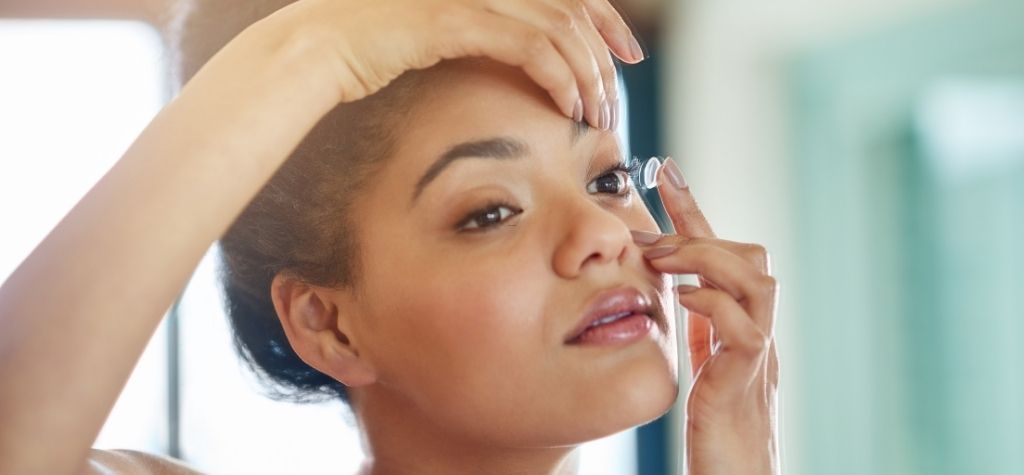
Wearing contact lenses can present unique hydration challenges:
- Lenses block oxygen from reaching the cornea, which can cause dryness.
- Hydration helps counteract this, improving comfort and wear time.
- Use rewetting drops in addition to drinking water to maintain eye moisture.
- Avoid long wear times and replace lenses as recommended.
If you’re a contact lens wearer, staying hydrated becomes doubly important to avoid irritation and discomfort.
When to See an Eye Doctor Despite Good Hydration
Even if you drink plenty of water, you should consult an optometrist or ophthalmologist if you notice:
- Persistent dryness
- Blurred vision
- Pain or discomfort
- Increased floaters or flashes
- Sudden changes in vision
Hydration supports eye health, but it’s not a substitute for professional care. Regular check-ups help detect issues early.
Hydration and Long-Term Vision Preservation
While water won’t cure or prevent age-related vision problems, it plays a supportive role in prevention:
- Reduces inflammation, which is linked to several eye diseases
- Supports tear film, which protects against surface damage
- Helps regulate pressure, relevant in conditions like glaucoma
Combined with a nutrient-rich diet, regular eye exams, and proper screen habits, hydration helps preserve your vision as you age.
FAQs About Water and Vision
1. Can drinking water reduce eye floaters?
No. Eye floaters are usually related to age or vitreous changes, not hydration. However, dehydration can make you more aware of them.
2. How much water should I drink to help with dry eyes?
Start with 8 cups (64 ounces) per day and adjust based on your climate, activity level, and symptoms.
3. Can dehydration cause blurred vision?
Yes, in some cases, dehydration can lead to blurry vision due to reduced tear film quality.
4. Is it better to drink water or use eye drops for dry eyes?
Both are helpful. Water supports overall hydration while drops provide immediate external relief.
5. Can lack of water cause eye infections?
Not directly, but dehydration can compromise tear film integrity, making the eye more vulnerable to bacteria.
6. Should children and seniors hydrate differently for eye health?
Yes. Seniors often have reduced thirst signals, and children may forget to drink—both need regular reminders.
Conclusion: The Verdict on Water and Vision Health
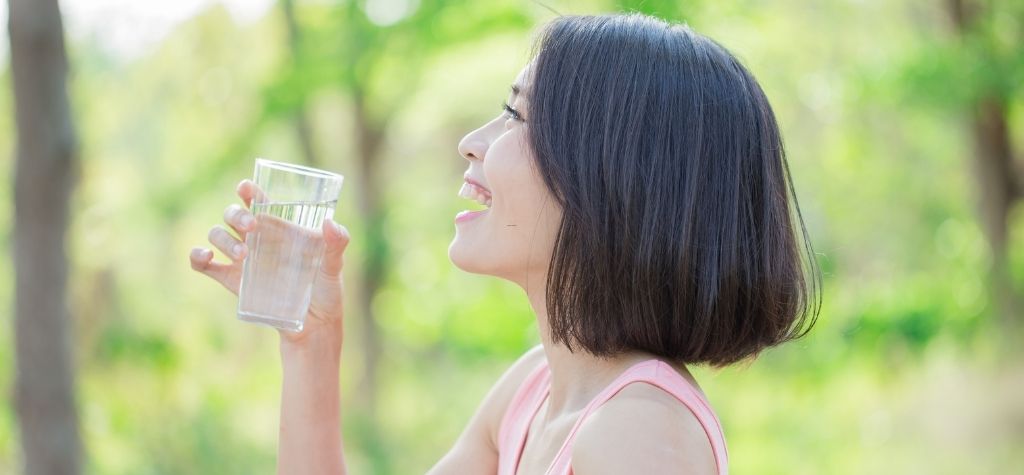
So, can drinking more water improve vision? Not in the way that a new pair of glasses can. But hydration is essential for keeping your eyes comfortable, moist, and functioning at their best.
Water supports the tear film, reduces eye strain, and helps prevent dry eye symptoms—especially in our modern, screen-filled lives. While it won’t improve your prescription, it certainly boosts your overall eye wellness.
👁️ Final tip: Combine hydration with a healthy diet, limited screen time, and routine eye exams for lifelong vision support.

